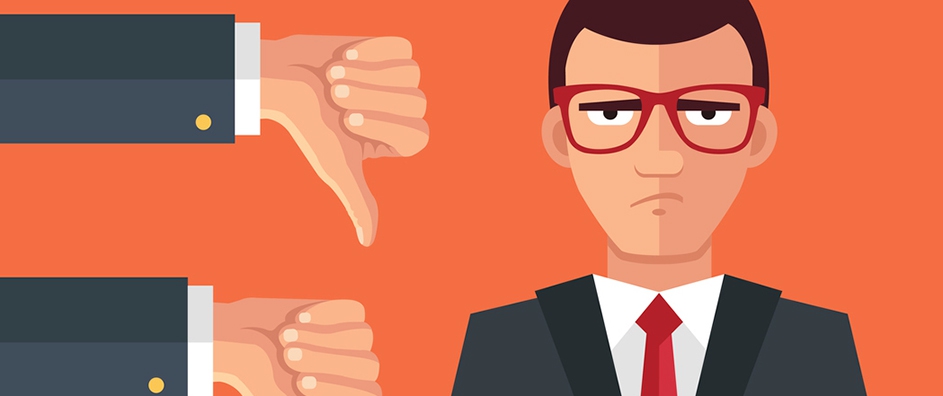The views expressed in our content reflect individual perspectives and do not represent the authoritative views of the Baha'i Faith.
Do we live in an “insult culture” now? If our world’s politicians are any indication, we sure do.
I read a withering insult from a British politician the other day. He said, describing the head of the European Union, that he had “the charisma of a damp rag and the appearance of a low-grade bank clerk.” My first impulse? I wanted to laugh at the insult’s diabolical, mean wit—but then I realized what it must feel like to be the person on the receiving end of that sort of public humiliation and ridicule.
First I wanted to laugh, and then I wanted to cry. Cruelty, whether spoken or acted out, just isn’t funny.
In India recently, a political leader publicly described a competing female politician as “worse than a prostitute.” The president of the Philippines recently called the American president the son of one—although he used a harsher word.
In the United States, the recent presidential election degenerated into an unprecedented, constant stream of ugly insults, many delivered electronically, accusing one candidate or another of crimes, stupidity, incompetence and much worse. The insults became personal, descending to the ridiculously childish level of “I know you are, but what am I?” Newspapers published entire pages full of personal and political insults from candidates.
In our politics and our public life, insulting others has obviously become a sport, a popular pastime, meant as entertainment or even humor. This has darkened and devalued our culture, and given a new level of permission for many people to insult others at will. The thinking seems to go something like this: after all, our political leaders do it, so why shouldn’t we?

Thomas Paine
This isn’t new, of course. People and politicians have always insulted each other. One of the most historically infamous political insults, which Thomas Paine wrote to George Washington in the 1700’s, said “… a hypocrite in public life, the world will be puzzled to decide whether you are an apostate or an impostor, whether you have abandoned good principles, or whether you ever had any?” Makes you think a little differently about Tom Paine and George Washington, right?
So what has changed since then? Well, today we have three factors at work that have all contributed to the rapid growth of our insult culture: the anonymity of social media; the extremely polarized nature of our political life; and the mistaken idea that insults are “straight talk” or “telling it like it is.”
But name-calling isn’t straight talk—it’s pure ugliness and aggression couched in verbal form. Most people get past the childish “You’re stupid,” and “No, you’re stupid!” phase when they grow up. Insults aren’t arguments. They’re not reasoned, logical or fact-based exchanges—in fact, they’re often used as poor substitutes for productive debate. When you insult someone or use verbal invective in an attempt to silence them, it actually shuts down any further chance for a reasonable discussion. When you call someone stupid, you infer that they’re not capable of intelligent thought—thereby closing off any continuing rational exchange; and even worse, suggesting that you’re somehow part of a superior species. If someone is stupid, after all, why even bother discussing anything with them?
This insult culture has taken public name-calling to a new level of viciousness and incivility. People used to yell at the television when they got frustrated, even though it couldn’t yell back. Now, on Twitter and Facebook, and in our civic and political life, too, we yell at real people and they respond, ratcheting up the insults, the tension and the toxicity. The yelling becomes mutual, and the anger and conflict rise. Hostility ensues. Feelings are deeply hurt, and people get defensive or aggressive. Violence can result.
The Baha’i teachings warn us about spreading this kind of conflict, and about what it can turn into:
One should not ignore the truth of any matter, rather should one give expression to that which is right and true… One must speak with fairness and appreciate such bounty. By the life of God! The word ’Equity’ shineth bright and resplendent even as the sun…
In these days truthfulness and sincerity are sorely afflicted in the clutches of falsehood, and justice is tormented by the scourge of injustice. The smoke of corruption hath enveloped the whole world in such wise that naught can be seen in any direction save regiments of soldiers and nothing is heard from any land but the clashing of swords. We beseech God, the True One, to strengthen the wielders of His power in that which will rehabilitate the world and bring tranquillity to the nations. – Baha’u’llah, Tablets of Baha’u’llah, p. 38-39.
The Baha’i teachings urge us all to focus on the good qualities of others, rather than seeing, hearing or speaking about any other qualities:
…as a blaze of light dispel the darkness of ignorance with the lights of service, adorn the horizon of the world with brilliant stars, become the sweet-voiced nightingales of the Paradise of Glory and the holy doves of the Supreme Heaven. Today, the confirmations of [Baha’u’llah] are with the soul who utterly forgets himself, constantly investigates his own faults and defects, loosens his tongue in mentioning the good qualities and sublime susceptibilities of others, does not see or hear or speak evil. Goodness personified shines as a sun and wafts as the morning breeze upon the earth. – Abdu’l-Baha, Star of the West, Volume 5, p. 130.
So here’s a suggestion you might want to try this for a week: See if you can refrain from speaking evil of anyone for seven days. Take a break from all that hurt. If you feel the impulse to insult anyone, whether you know them or not, think first about the good qualities that person has, and think about your own faults and defects. Consider whether you would like anyone else to publicly point out those faults and defects. Then refrain from that insult or putdown or slight. Try to ponder how it would feel if someone said the same thing about you, and then put that potential insult out of your mind.
After your week of fasting from offensive comments and thoughts, ask yourself how you feel. See if your insult-free week made you happier. Try it—it can’t hurt, and if you continue it indefinitely, it will probably adorn the horizon of your world with brilliant stars.
You May Also Like
Comments

















is here for: confronting the issues
of the world as it is now and looking
to Baha'i scriptures for how to react!
We find that everyone likes this (which is, in our opinion, Bahá'u'lláh's FOREMOST prohibition!). 'Abdul'-Bahá says that, if we could put just ONE of the Teachings into practice, it would change the world - this one is a good place to start!
Great article, thanks!